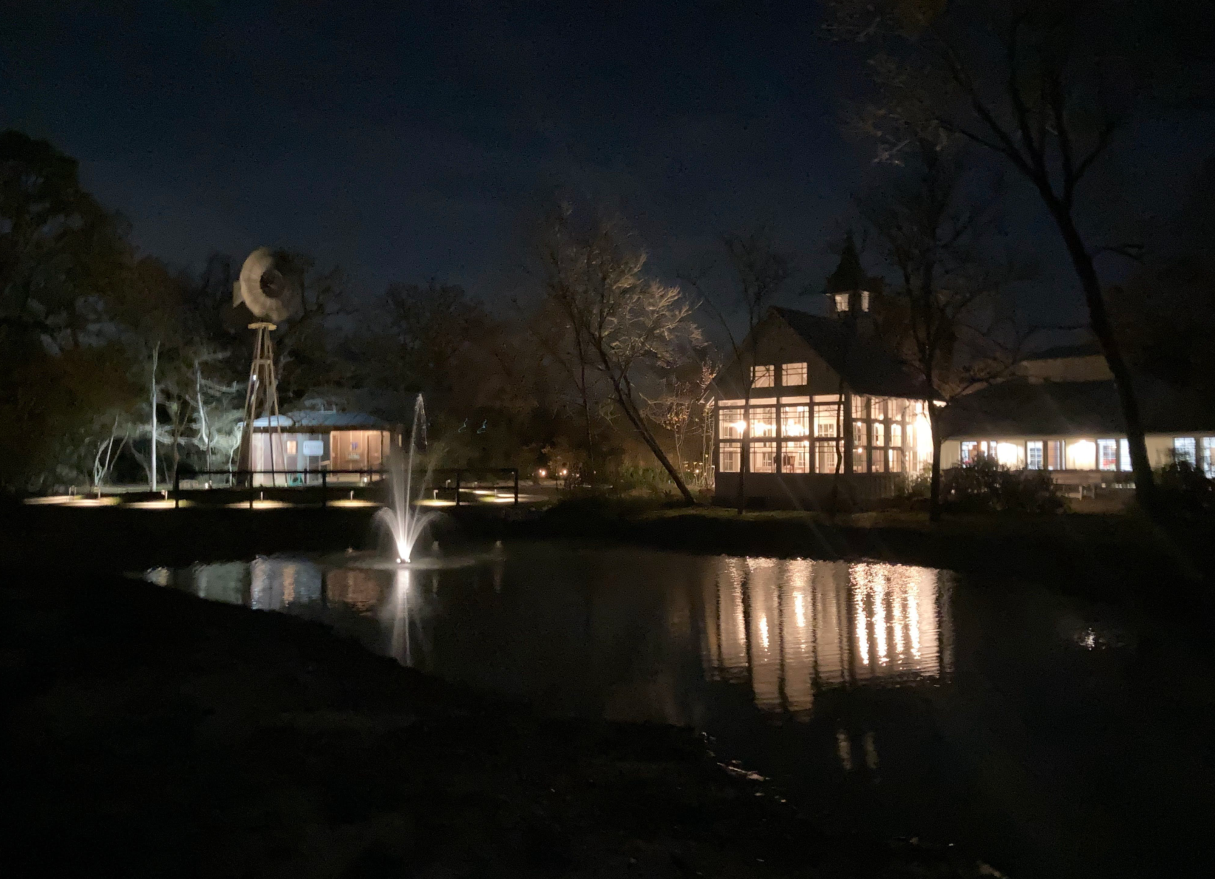February 2022

WWID: What would an imposter do?
Today I wrote down everything that’s due this semester in my calendar. As I was finishing up that process, a friend texted me, “How is your semester starting off?”I looked down at my calendar, thought a second, then responded with, “Just put everything on my calendar and am 99% sure it’s impossible to do it all, but imma try anyway.” And I meant it.
You see, dear Reader, last semester I took one introductory course, two rhetoric courses, and a professional development seminar. Were there a lot of readings? Absolutely. Did I understand any of them? Not until about week 9, no. Regardless, I did it and came out relatively unscathed, at least it feels that way now.
I think part of the reason for this is that I only had one major rhetorical paper that I had to write the entire semester. This is not to say I had no work and just hung out all the time, quite the contrary, my work was just not based around research writing as much as it appears to be this semester. Because rhetoric as a sub-discipline is beautiful, magical, and wonderful, it requires no methods section. No pesky IRB approval. Just a human and their thoughts and some sort of speech/movie/image/video/text to look at. As one of my rhetoric professors said vehemently, it’s an art, not a science. And I loved that. But this semester I am switching out the proverbial artists' smock for a lab coat and wow, do I have some concerns. My internal dialogue looks something like this.
“What is social science, again? Didn’t I used to do this? Wait, no, all of my graduate experience was based in practicum, I’ve never actually designed a whole study before. Oh wait, I kinda did once at my job! Hold on, they want me to do all of that —in one semester? Once for each class? Three times?! While teaching? And doing other assignments? I’m reading how many pages for her??!?? *!+<~€! *^%!*”
As always, I leave it up to the Reader to fill in that last word at their discretion. Suffice it to say, I have a busy upcoming semester. So, as any good first year doctoral student would do, after texting my friend back, I immediately panicked, and after cycling through a few rounds of the above internal dialogue, ended up with one word left in my head: I m p o s t e r.
Ahh, imposter syndrome again. I wrote a blog about it once. Ironically enough, I used it as a part of my application materials for this very program. Imposter syndrome at its most basic is exactly what it sounds like, feeling like an imposter regardless of your credentials, qualifications, etc.
Although I’m well acquainted with this feeling, this time it feels different. Before when I felt like an imposter, it was just that, a feeling. I really did know what I was doing, I just felt like I didn’t. This time I don’t know what I am doing. I am an imposter. The first step in fixing any problem is first admitting it, so here it is in black and white: I Delaney Catalina Couri, of neither sound mind nor body, am an imposter.
With this premise in mind, I shut my laptop and walked home from work in a daze. Planning normally makes me feel better, but not this time. I walked home thinking about what this realization meant for my semester. The first thoughts I had were of denial and remorse. Am I really here? How did I mess up this bad? Then, they shifted to acceptance, skipping a few stages of grief along the way, as I seem prone to do.
Ok, so I’m an imposter. What do imposters do? What would an imposter do this semester? The self-identification that a few minutes before had left me feeling powerless quickly switched into one of intrigue and empowerment. What would an imposter do? WWID? That very question is the focus of this blog, which I labeled as, “success tips,” rather than “memoir,” so, without further ado, let’s get to it. WWID?
3 Success Tips for Imposters; Or, How to Fit In!
1. An imposter’s goal is to fit in. Imposters are somewhere they shouldn’t be, but they work very hard to not let anyone know that. Imposters work very hard to fit in by observing those around them. Picking up on the norms of the space, everything from the style of discourse to the manner of dress. So, if you are an imposter, pay close attention to your surroundings. Did someone say something during a lecture that made the professor nod her head encouragingly? Try remembering that. Did one of your peers start brainstorming her paper ideas this weekend? That seems like a timeline you can follow. The key here is to blend in. You don’t want to be remarkable, that’s unbelievable; aim for average, and, as paradoxical as it seems, you’ll be great!
2. Imposters are, by nature, ignorant about much of what is going on around them. Ignorance at its most basic seems to be a bad thing, but it doesn’t have to be! Although ignorance and confidence are not the same thing, if you’re clever, they can look that way. Imposters in academia may not know or understand the formal hierarchy or norms of engagement. The lines between assistant, associate, visiting, clinical, and adjunct may be blurry to an imposter unfamiliar with the structures that the academy has put into place for years. Thus, an imposter’s ignorance regarding how much institutional power someone holds can be perceived as confidence if they mistakenly strike up a working relationship with someone beyond their academic caste. Use your ignorance to your advantage by being unafraid to talk to people!
3. Imposters do not become imposters because they are bored. No, imposters want something out of the situation they place themselves in. So, what do you want? An A? To impress your advisor(s)? A degree? A job? Whatever it is that you want, think about that. Meditate on it for so long that you recognize how important it is, and not worth losing. Being an imposter requires constant work, reevaluation, and thinking on your feet; if you forget what it’s all for, it may feel easier to quit.
Don’t. Pervade and persist!
Imposters can not do everything on their own. Even if they master the three tips shared above (eavesdropping/paying attention to peers, using ignorance for good, remembering what they’re there for), they will still need help. Lots of it. Asking for help may seem like a dead giveaway that someone is an imposter, and I’ll concede that, in some places, that may be true. But in graduate school? In graduate school, professors encourage asking questions.
Want to know if your research idea is any good? Ask to meet her for a waking meeting and let her guide you through your ideas as you guide her through campus.
Feeling overwhelmed about taking a methods course with an incredibly dense textbook? Jump onto his Zoom office hours and be honest with him that you’re struggling— take him up on it when he promises to hold your hand as you navigate the semester.
Need a little extra help translating your great ideas into something that is legible to those outside of your brain? Just ask her; you’re in her office anyway. Let her show you that she understands the way you think, that you made the right decision working with her.
Let the older graduate student give you a heart to heart in your office. Let the other one look at your syllabus and help you find relevant articles. Let them invite you to dinner to forget about it all for a night. Let her drive you home after a long day.
Let them believe in you. Let them love you. Let them take care of you.
Because in the end, we’re all imposters, just trying to make it through “the next thing” that the world throws at us. And we’re all human, too. We’ve all been there.
Then maybe one day soon when you’ve mastered it all, learned how to get by as an imposter, you’ll no longer be tied to that label, but instead slip in and out of that identity with each new job, relationship, and moment in your life.
For me, being an imposter just means being present and open. I’ve never felt like I’ve belonged anywhere, but I’m learning that it just may mean I can belong anywhere. So, the next time you feel like an imposter, embrace it and think, “What would an imposter do? That’s what I’ll do. That’s why I’ll make it.”
